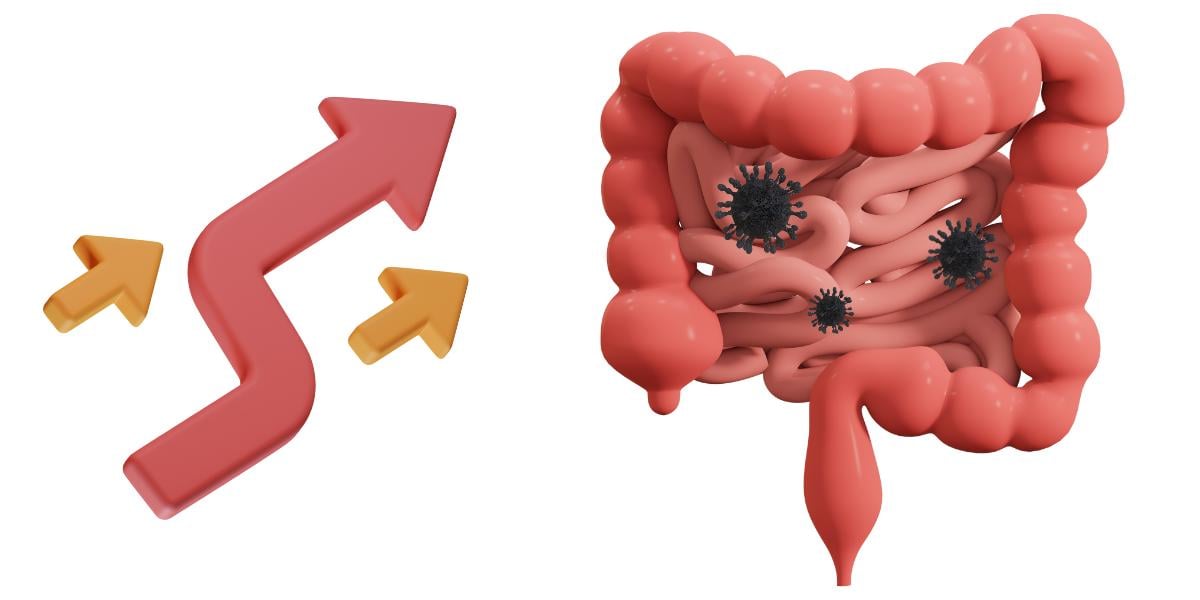Imagine a type of cancer so rare it affects only 14 people out of every one million. That’s enteropathy-associated T-cell lymphoma, aka “EATL,” an aggressive cancer that attacks the small intestine as a complication of celiac disease.
And this cancer is on the rise.

Why Celiac Disease May Lead to EATL
Celiac disease is caused by an aggressive immune reaction to gluten, a protein in wheat, barley, and rye. Essentially, gluten triggers the body to attack the small intestine in people with celiac disease, causing chronic inflammation. This inflammation causes a whole host of problems, including headaches, diarrhea, anemia, and malabsorption, to name just a few.
Most symptoms of celiac disease will go away when you follow a strict gluten-free diet. However, people who aren’t dedicated to their diet or who have refractory celiac disease (meaning their symptoms don’t respond to a gluten-free diet after 6-12 months) are at a higher risk for EATL.

This is because the gut can’t heal from that chronic inflammation, and ongoing damage can lead to abnormal immune cells in the small intestine lining called “intraepithelial lymphocytes.”
Now, it’s important to remember that even healthy individuals have normal intraepithelial lymphocytes in the lining of their small intestine. However, people with unmanaged or refractory celiac disease may form a lot more abnormal lymphocytes due to continued gluten exposure or inflammation. Those abnormal lymphocytes are at an increased risk of transforming into cancerous lymphoma cells, leading to non-Hodgkin lymphoma.
Why EATL Is on the Rise
Although researchers clearly indicate that EATL is on the rise, that doesn’t mean that more people with celiac disease are getting this very rare form of non-Hodgkin lymphoma.
As celiac disease education continues to increase, so do diagnosis rates. In other words, some people who found out they have been living with previously undiagnosed celiac disease might also discover around the same time that they have EATL. And at that point, it may be too late because EATL is very hard to treat.

Why Early EATL Diagnosis Matters
If EATL is so rare, why does early diagnosis really matter? Protecting your health is always important, no matter the reason. So, if you’ve been putting off finding out if you have celiac disease or another autoimmune issue, please don’t wait.
On the other hand, if you have celiac disease and aren’t responding to a gluten-free diet, ask your doctor to rule out EATL. At the very least, you can have more answers and better peace of mind.








